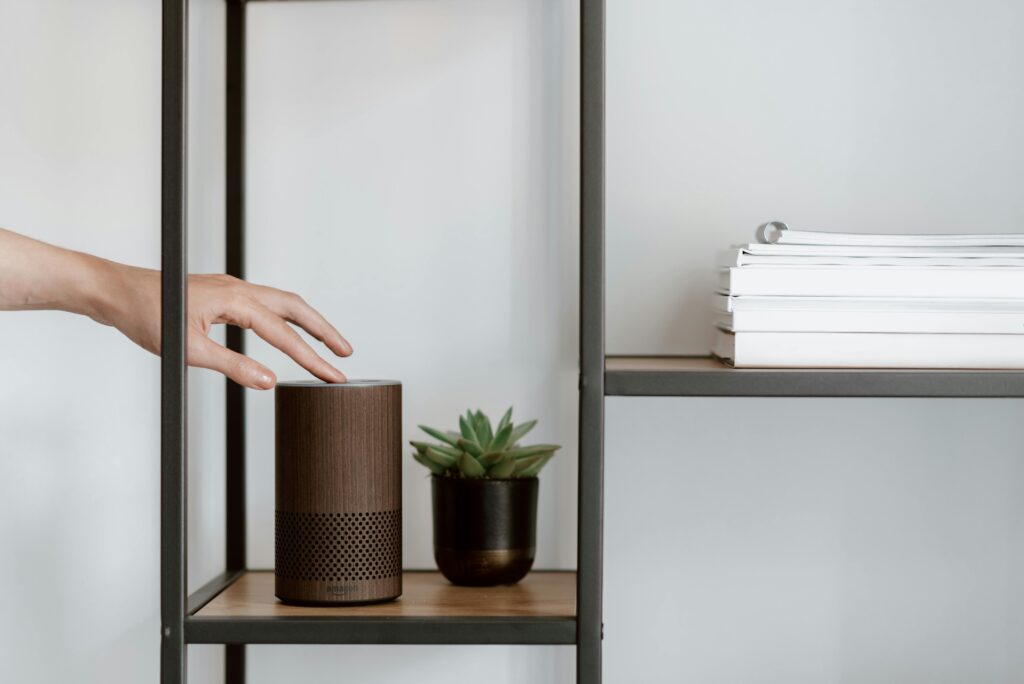Index
Home automation represents one of the most advanced technological innovations of recent decades, revolutionizing the very concept of "home." But what is home automation used for in practice? Through the integration of automated and interconnected systems, home automation improves the comfort, safety, and energy efficiency of the environments we live in. With the use of smart devices and home automation systems, it is now possible to control functions such as lighting, temperature control, and security in your home in real time, even remotely and with a few taps on a touchscreen or via an app. Let's take a look at what this technology consists of, what its advantages are, and how home automation can make our daily lives safer and more enjoyable.
[cta-casavo title="Looking for a home? We'll find it for you." text=""]
What is home automation and where does it come from?
Home automation, whose term derives from the Latin domus (house), began to develop in the second half of the 20th century, when the first electronic devices began to spread. Initially limited to basic functions such as automatically turning on lights, it now includes integrated solutions that allow the management of a series of smart home systems and systems. The evolution of this technology responds to the growing demand for comfort and energy efficiency, transforming homes into smart buildings where every device is designed to adapt to the needs of their inhabitants and improve their quality of life.
Why choose a home automation system? The advantages of the smart home
Comfort and ease of use
Among the main advantages of home automation is the ability to simplify home management. A well-designed home automation system allows you to automate functions such as lighting, heating, and turning on appliances, adapting them to our habits. For example, the shutters can be raised automatically in the morning and the lights turned on at sunset, creating a perfect environment every time, effortlessly. These intelligent systems offer intuitive remote control via smartphone apps that allow you to set your favorite scenarios with a simple touch. With this management, saving time and optimizing resources become part of everyday life, enriching the livability of the home.
Advanced security
Home automation offers a high level of securitythankstosmart cameras, sensors, and burglar alarm systems that can be monitored in real time. For example, in the event of intrusions or suspicious movements, you receive notifications on your smartphone and can check the situation remotely. Integrated electronic locks and burglar alarms add additional layers of protection, making the home not only safe but also manageable remotely, reducing anxiety and worry.
Energy efficiency and savings
Thanks to automated energy management, home automation allows you to optimize consumption. Smart thermostats adjust the temperature based on room conditions, avoiding waste; lights and appliances turn off when not in use or in unoccupied rooms, contributing to significant energy savings. Furthermore, with the use of smart home devices, it is possible to monitor consumption and identify any waste, an excellent solution for those who want to lower their bills and make sustainable choices.
Examples of use and common automations in smart homes
Automated home functions
With home automation, many household functions can be automated. Voice assistants like Amazon Alexa and Google Assistant allow you to turn lights on and off, adjust the temperature, close windows, or set alarms, simply by speaking. Even managing motorized awnings or irrigation systems becomes intuitive, for a home automation system capable of adapting to every moment of the day, always under control and easily customizable.
[cta-casavo title="Not sure where to start?" text="We do, request a free consultation."]
Energy and consumption management
One of the most useful aspects of home automation is energy management. Home automation systems offer the ability to monitor consumptionand program the operation of appliancesat the most convenient times. Some systems even allow you to recognize the habits of the inhabitants, adjusting temperatures and lights according to their preferences. These smart systems not only increase convenience, but also make the home more sustainable and help reduce environmental impact.

Challenges and considerations in choosing a home automation system
Compatibility between devices
Another important aspect concerns compatibility between different devices and manufacturers, an often complex topic. With the expansion of the smart home market, many users encounter difficulties in integrating various accessories and home automation systems. But companies are trying to overcome these limitations by creating more open and interoperable platforms, facilitating the use of home automation in any home.
Home automation in the future: towards a simpler and more sustainable life
In the near future, home automation will continue to transform homes into true centers of energy efficiency and personalized comfort. Technologies like 5G and artificial intelligence will take home automation systems to a new level, making smart homes increasingly autonomous and capable of adapting to the daily needs of their residents. The future vision of home automation that enriches our lives is already being realized today, in solutions that allow us to improve our quality of life with just a few gestures.
Casavo revolutionizes the way we experience our homes with digital solutions and transparent commissions, supporting users at every stage of the sales and purchase process. Thanks to its innovative technology, Casavo helps sellers maximize sales opportunities and choose the most suitable offer, simplifying every step of the buying and selling process.
[cta-casavo title="Casavo Homeplus offers you advantages across the entire home world" text=""]

